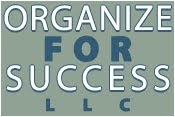1. Thou shalt have a clear purpose. Many meetings mistakenly focus on simply updating those in attendance; however, there are plenty of alternative means for conveying updates that are less intrusive to attendees' valuable time. Instead, meetings are most productive when they focus on one of two purposes: (a) discussion or (b) decision-making. If your meeting's purpose is not one of those, could the goal be achieved in an alternative manner?
2. Thou shalt be strategic with scheduling. Often, when meetings are set, we indicate a starting time but forget to set a specific ending time; attendees can better plan the remainder of their day if provided an end time in addition to a start time. Further, be cognizant of vacation plans so meetings are not scheduled when many who need to attend will be gone. Plus, avoid scheduling a meeting in the days leading up to a big deadline if the meeting is unrelated to the project coming due as well as during times when there will be too many distractions for folks to focus.
3. Thou shalt trim the fat. Shorten how long you plan to meet and, then, push yourself to accomplish everything on the agenda within that shorter duration by using a timer or having someone serve as timekeeper. Try to end meetings at least 10 minutes before the next hour, i.e. 12:50, 1:50, 2:50, etc, or schedule your meetings in 15-minute blocks, like running from on the hour to quarter 'til the next hour. Attendees will appreciate those few minutes before the next hour to return a quick call, run to the restroom, grab a beverage or gather their thoughts.
4. Thou shalt invite the right people and only the right people. Whether having a discussion or making a decision, it is important to include those whose contributions are necessary for accomplishing the meeting's goals: those with the authority to make decisions, those with enough pull in the organization to advocate for meeting decisions, those with the expertise needed to make informed decisions as well as the plans necessary for successfully executing said decisions and those who will be needed in executing such plans to accurately complete the plans resulting from the meeting. On the other hand, the Rule of 7 states that "everyone in a meeting over 7 people reduces your ability to make decisions by 10%." Therefore, include only those whose contributions are necessary for accomplishing the meeting's goals as too many attendees will deplete productivity.
5. Thou shalt have a plan to achieve the stated purpose. Create a realistic agenda, listing what you truly believe can be accomplished within the scheduled time allowed. Structure that agenda to address the most important issues first. Try to indicate how much time is being allocated for each element listed. Solicit feedback from attendees to ensure anything important is included while lower priorities and unrelated topics get removed.
6. Thou shalt prepare beforehand. Distribute any supplemental items for review to all attendees beforehand. Share necessary updates via email before the meeting date. If there is legwork that can be done in advance, completing that beforehand will allow the meeting itself to run more efficiently. As explained by Dana Manciagli in The Triad Business Journal, "proper planning prevents poor performance". Take time to get your ducks in a row before, allowing the time during which folks have come together to be devoted to discussion and / or decision-making.
7. Thou shalt communicate expectations clearly. If you are leading the meeting, set expectations on how those attending should behave and share those with attendees, whether in writing prior to the meeting or at the start of the meeting. Here are a few suggestions: come prepared, contribute to the discussion with feedback, share your insights as applicable, make sure to ask whatever questions you have and limit technology distractions. Additionally, specifically state guidelines for interjecting during the agenda, like when to ask questions, how to pipe up for brainstorming or at what point is it appropriate to share feedback during a discussion. Think proactively about what situations might arise related to each meeting and be specific with standards set.
8. Thou shalt take notes. This shows your commitment to the topic, helps you pay attention and enables you to refer back to items covered earlier as the meeting progresses. If you have the agenda beforehand, use that agenda as a framework for filling in notes from the meeting. Highlight what is important, whether via a different color of ink or by blocking that content off separately. Designate each task that must be done as it arises in conversation during the meeting. Then, end your meeting notes with a recap, including the highlights, action items and timing of next meeting.
9. Thou shalt stay focused. Denote on a separate list any tangents or issues not on the agenda as they arise. If there is extra time at the end in which attendees want to address those items, feel free to attempt it; however, it is often the best use of everyone's time to schedule another time for discussing or resolving those issues on a later date.
10. Thou shalt be accountable for completing tasks. When it comes to moving items from to-do to done, my rule of thumb is "every what assigned a when is more likely to get done", which means each action item arising from the meeting needs a deadline for its completion. Further, ensuring tasks get completed is more likely when there is someone accountable for that task's completion, hence why there needs to be someone assigned to the completion of each task that results from meeting discussions.
What tactics do you utilize for successfully having productive meetings? What are your success stories? What issues have you faced in keeping your meetings on track?


No comments:
Post a Comment